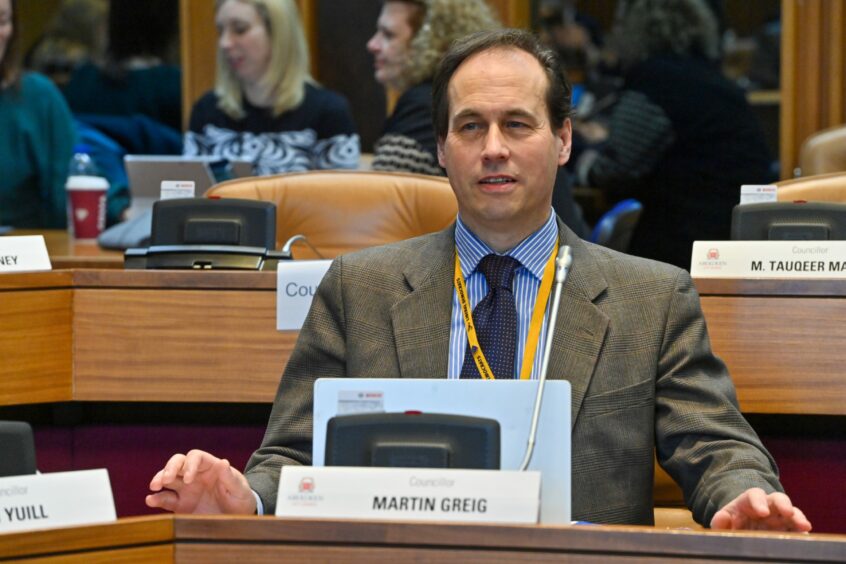Asylum seekers may be forced to share Aberdeen hotel rooms two at a time, as the number of people seeking shelter in the city rises “week on week”.
Talks are ongoing between the Home Office and local authority chiefs on making refugees and asylum seekers double up.
UK Government sources claim the practice is “nothing new” and cite successes elsewhere in making more of available space.
Families are not expected to share with other families, single males and females.
Security is also upped when room sharing – which is not optional – is introduced.
Asylum seekers are offered help on a “no-choice” basis, meaning the UK Government threatens to withdraw support if they refuse the provided accommodation.
Home Office hotels raise Aberdeen asylum seeker strain ‘week on week’
As of last week, there were more than 500 people being put up in Aberdeen hotels having sought asylum in the UK.
And health bosses, warning of an impact on services, say the numbers are only moving one way.
Members of the Aberdeen IJB, which oversees health and social care in the city, were told in a report: “The numbers have been steadily increasing week on week.
“There is an anticipated continuation of this until all hotels are full which would be a further 244 available rooms at present.”
Room sharing could enable the city to “double” capacity if it goes ahead, it has been claimed.
But when probed further, Aberdeen City Health and Social Care Partnership (ACHSCP) chief operating officer Fraser Bell didn’t have any answers.
“We are still waiting to hear what the room sharing means in practice,” he told the IJB.
Sunak driving hotel room sharing for asylum seekers in Aberdeen
Prime Minister Rishi Sunak announced the drive to make asylum seekers share rooms in June.
On Tuesday, a Home Office spokeswoman told The P&J: “Despite the number of people arriving in the UK reaching record levels, we continue to provide accommodation for asylum seekers who would otherwise be destitute to meet our legal obligation.
“To reduce hotel use, asylum seekers will routinely share rooms with at least one person where appropriate. This will minimise the impact on communities while we stand up alternative sites.”
The city council is yet to comment on potential room sharing arrangements in Aberdeen.
Home Office dictated asylum seeker placements difficult for Aberdeen to ‘get a handle on’
But the move will pack even more people seeking asylum into an already stretched support system in Aberdeen.
City IJB members have been warned that the weekly rising numbers are “impacting” on health and care services.
Bosses hope it will allow better links between Aberdeen’s asylum seeker population and public welfare services.
However, board chairman John Cooke admitted it was hard to “get a handle” on the situation as asylum seeker placements in Aberdeen are outside of local control.
A Scottish Government spokesman told us the health and welfare of all refugees “remains a priority”, and that they are able to access services like GP practices just as residents are.
He added: “We have called on the UK Government to provide suitable funding for council and public services to ensure that people seeking asylum being accommodated by the Home Office can access essential services, like health, and that any impact on existing local service provision is minimal.”
A ‘measure of Aberdeen’s humanity’
But balancing the city’s “positive and caring” response to the influx of refugees and asylum seekers is posing trouble across the city.
Earlier this year education bosses warned “bulging” school rolls might force them to split siblings up between different schools, as there is not enough space.
During current global crises, Aberdeen has welcomed twice as many people seeking humanitarian aid as the average Scottish council.
Millions has been put up in funding to help find Ukrainians fleeing war new homes in the Granite City.
Despite the maelstrom, Lib Dem councillor Martin Greig said: “We want to continue to show our solidarity with refugees coming from elsewhere.
“But we need to continue to provide quality care.
“I think it’s very positive to see the considerable amount of care and support being given to refugees and asylum seekers, who are clearly in life-threatening circumstances and in genuine need of assistance.
“It’s a measure of our humanity that we are able to reach out and provide help and encouragement to those who are in even more dire personal circumstances than ours locally.”




Conversation